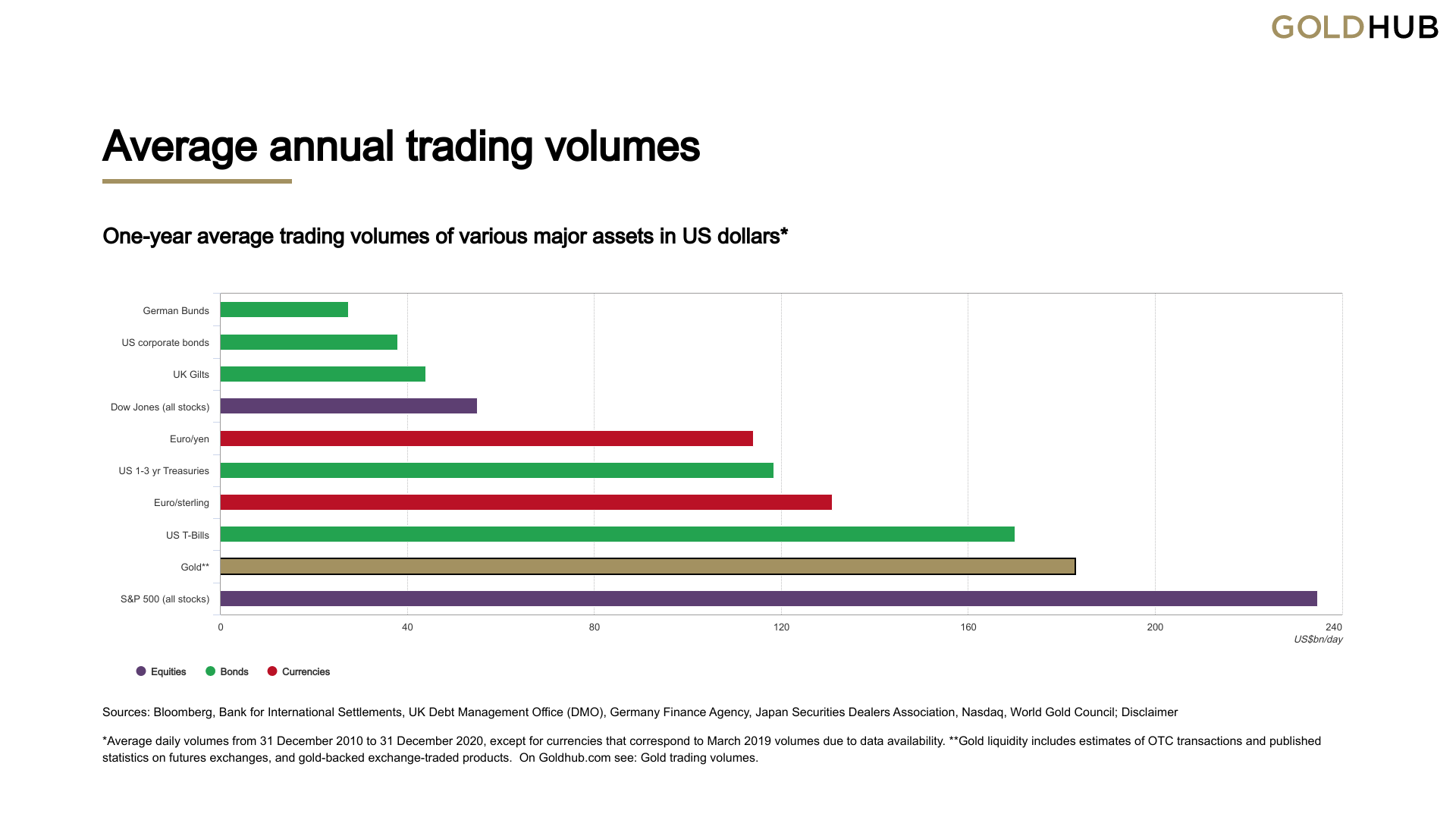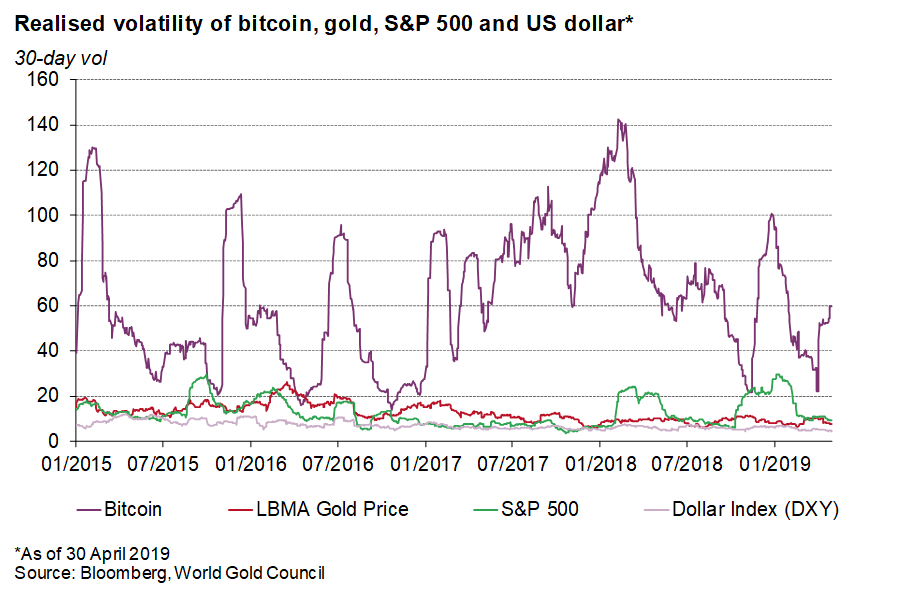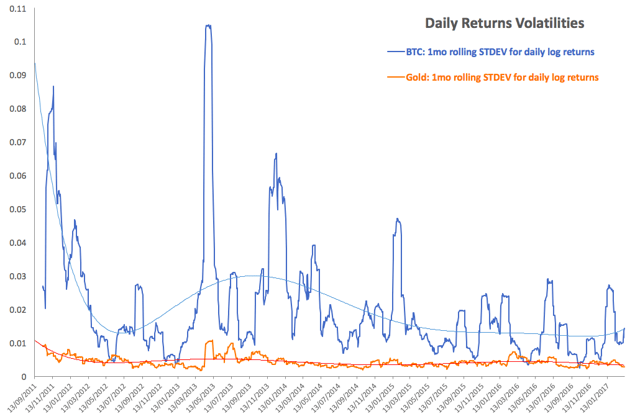About the author: David Fergusson is the CEO and co-founder of Hugo. An experienced entrepreneur, he is the Director of Nimoi Holdings, Hugo’s major investor, Woodside Holdings Investment Management, and Chairman and co-founder of Global Precious Metals.
Gold is a curious metal: it is remarkably heavy, yet soft, extremely inert, but with a lustre that is beguiling to almost everyone, which is why it remains the material of choice for jewellery. It is an equally curious investment, and there is no more divisive subject amongst investing professionals than Gold. We live in a globalised world where economies are all interconnected, and, thus, safeguarding our wealth from economic risks and market volatilities is essential. And for Singapore, a global trade hub maintaining the delicate balance of business and diplomacy with its more powerful economic partners, gold investment needs to be a serious consideration for every Singaporean’s personal finance.
Gold shines the brightest in times of inflation and uncertainty
The naysayers claim that Gold does not yield, it is expensive to produce, it is of not much use for anything other than jewellery, and its price moves around a lot.
They are correct.
The pro-gold lobby will point out that over time the gold price reflects the cost of producing it, which tends to reflect inflation. It has been a form of money since Man lived in grass huts, it has a semi-rigid supply, which means Central Bankers can’t debase it, and it is the highest power money because it has no counterparty, and cannot be conjured out of thin air like the US Dollar, the British Pound sterling, the Singapore Dollar, or any other fiat currency. Gold holds its value over time regardless of what goes on around it.
They are also correct.
This is the paradox of Gold. There may be no earthly reason to hold gold or for gold to be the one long-term constant in millennia of innovation and fraud (!) in finance. But it is, and that constant provides protection against all manners of risk and uncertainty.
As such, investors ignore gold at their peril.
It is oft-argued that Gold has seen its time, and it is time to move on. After all, the collapse of the Bretton Woods system—the abandonment of the gold standard—in 1971 led many people to believe it was time to retire the gold. Well, 50 years on, it’s still very much around.
Why is it still relevant today?
The gold market is highly liquid

Source: World Gold Council, gold.org | Gold is still one of the most traded assets in the world. Who ever said gold is no longer cool?
Well, the gold market is still one of the most liquid markets in the world, with roughly US$200bn traded on recognised exchanges, making it the 3rd largest financial market. But that misunderstands that gold trades in informal markets in every small town in the world, via traditional jewellers (in India or Indonesia) or pawnbrokers in developed countries. This volume goes unrecorded but is undoubtedly huge.
It also underpins an important feature – you need to be in a financial centre to trade securities, but Gold can be traded from Toronto to Timbuktu to Temasek (using the old name for Singapore).
Gold effectively insures your investments against risks
Nowadays, Singaporean investors are bombarded with all sorts of investment instruments and products, most of these are global portfolios which are generally volatile and highly exposed.

Source: World Gold Council, gold.org | A 4-year look at pre-covid market volatility: Bitcoin tends to fluctuate the wildest, followed by the stock market while Gold holds stable and appreciates in value over the course of time.
Thus, having gold in their portfolios can serve to dampen out the volatility. Not only is it liquid, but Gold is also one of the rare asset classes that are non-correlated. This means that you can put it in your portfolio as insurance, and you can be comfortable that if the world around you blows up (or when your Bitcoin value goes in the opposite direction as the moon), your Gold will provide you safe-haven performance and lower the turbulence somewhat.
Gold can cushion your wealth in black swan events
Consider also a live scenario. The US dollar hegemony that we have witnessed since the end of WWII is increasingly bristling for China. Within Asia, trade is still conducted largely in US dollars. This made sense when Asia’s largest trading partner was the US, but less so now that China is the big kid on the block. So logically, it makes sense to switch intra-Asian trade into RMB.
Irrespective of the lip service paid to the increasingly bombastic China, regional countries are delighted by the military presence in Asia that the US dollar hegemony brings. And no one trusts China or its currency (when compared to the US dollar).
China, if it is anything, is strategically savvy. It is amply aware of the “reservations” other countries have to it and its monetary system. A simple solution to redress the balance vis a vis the US dollar would be to introduce a gold-backing to the Chinese Yuan. This would have a massive, immediate and strategic impact on China’s position relative to the US and the dollar.
Whether China’s astonishing production and purchase of Gold over the past 15 years is a precursor to this type of strategic move is pure speculation. However, it does highlight the relevance of Gold.
Where your gold is, there your wealth is also
You may have heard of Central Bank digital currencies – this, perhaps more than anything, highlights the relevance of Gold in the modern monetary system. Central Bank digital currencies are hailed by Central Bankers and their acolytes as a new wave of efficiency for managing currency. Even Singapore is now setting up its own digital currency.
For anyone with even a passing understanding of monetary mechanics, Central Bank digital currencies are, at best, a way of stealthily monetising all the debt on Central Bank balance sheets – i.e. debauching the currency the same way as every other monetary reform has. At worst, they will enable governments to combine fiscal and monetary policy and target their larceny far more effectively.
Either way, Gold will offer you a safe harbour from the piracy.
To hodl 6500 cryptocurrencies or hold a single gold?
It is fair to ask where the increased digitalisation of the world leaves such a physical phenomenon.
The take-up of Bitcoin and other forms of cryptocurrencies and their anointment by the punditry as “Digital Gold” has certainly had some impact on gold-trading. After all, they are all the rage nowadays with 28% of young investors already in on it. Money that would ordinarily have headed into Gold has headed into Bitcoin and other cryptos. And it is arguable that gold would be far higher today were it not for froth taken out of the market by Bitcoin et al.

Source: seekingalpha.com | Note: This chart shows daily volatility, not growth in value over time. Bitcoin’s unpredictable fluctuations and reactivity to world events make it an unreliable store of wealth.
But that does not affect its relevance, in fact, the proliferation of cryptocurrencies highlights the benefit of gold – you can invent thousands of unanchored cryptocurrencies but there is only one Gold. When a currency, including cryptocurrencies, is unanchored, it means its value is not based on anything real or reliable. This is why a single tweet from Elon Musk sent Bitcoin on a nosedive, and why the Chinese ban on cryptocurrencies shook the crypto exchanges.
How Singaporeans can hold gold
The most obvious way to hold Gold is via bars and coins, but these typically have relatively high premia (read costs) for purchasing the exposure. There are reasons why you do not find gold bars in most Singaporeans’ homes:
- A small 1-kilogram gold bar is worth $76000 at the time of writing. Keeping it around at home is nerve-wracking.
- When you keep it in a vault, you pay vault fees.
- Most people buy insurance to protect their gold.
They also have some inherent problems like forgery, theft and a lack of easy liquidity. As such, they were superseded by various “paper” Gold instruments, from ETFs to derivatives. While these are cheap and liquid, and accessible, they are not Gold, but a facsimile. You own a claim on Gold via a counterparty and not the underlying Gold.
Go for gold with Hugo
Perhaps the most exciting part of the digital world is how technology can combine with tradition to give the best of both worlds. Hugo allows you as a user to hold physical Gold, with no counterparty and immediately liquid anywhere, anytime.


